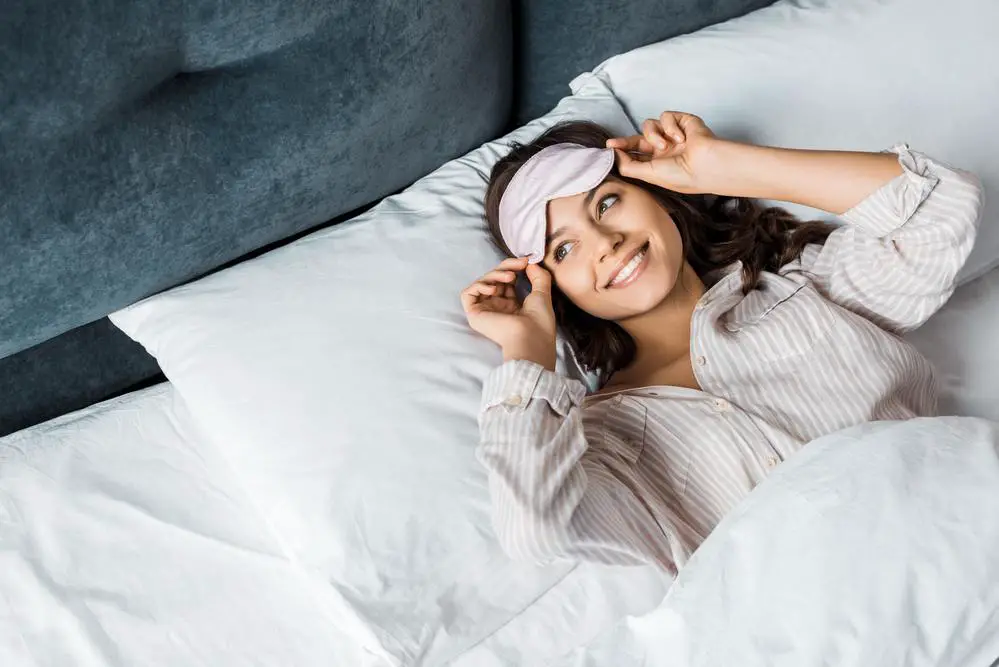As a BetterHelp affiliate, we receive compensation from BetterHelp if you purchase products or services through the links provided
Sleep or eye masks have become versatile sleep aids for anyone struggling to fall asleep due to light disruptions. Let’s face it; we are exposed to more light now than ever, disrupting our circadian rhythm. Blocking out unwanted light with an eye mask, whether you sleep at night or during the day, helps the body reach deeper and more restful sleep because it ensures total darkness, much like blackout curtains.
You may feel overwhelmed when choosing a sleep mask. Here are some factors to consider, making finding the best eye mask for sleeping easier based on your needs.
Find Your Perfect Fit
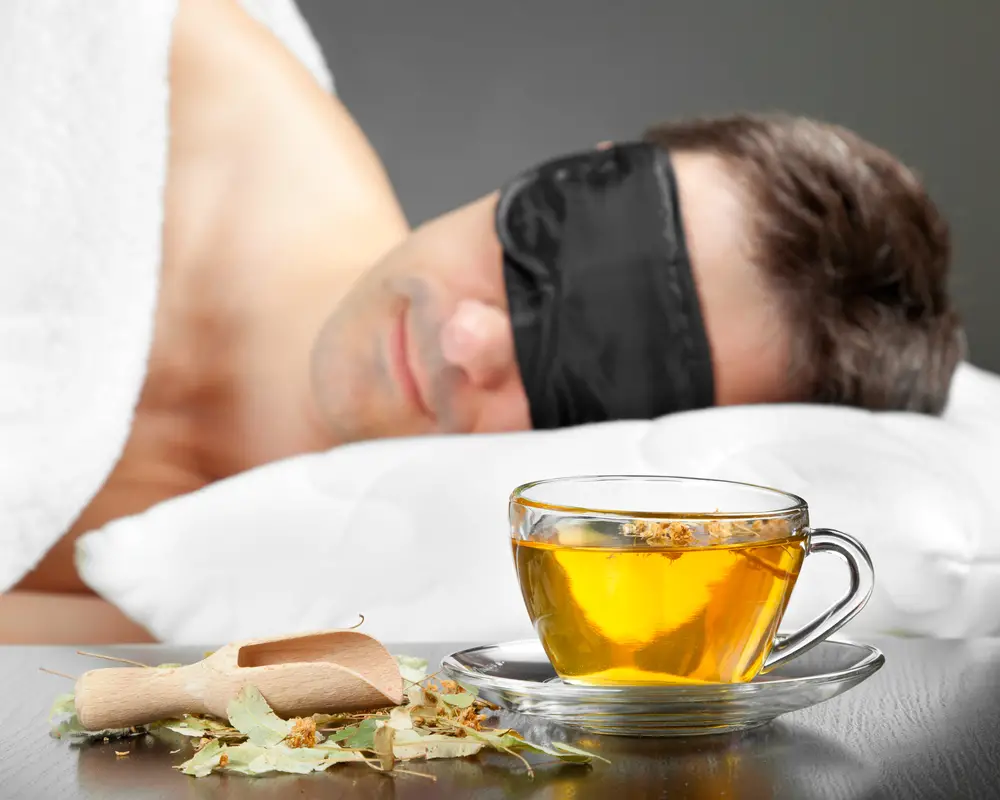
There are several types of eye masks, each with perks, making it tricky to choose the correct one. These include simple cloth sleep masks, weighted masks that apply pressure, gel masks for warming or cooling, and contoured masks.
When looking for the best eye mask for sleeping, you should consider the fabric, the type of mask, and whether it fits perfectly.
Let’s look at how to determine the perfect fit:
One size fits all does not apply when choosing a sleep mask because you want to ensure rest and not have to battle with an uncomfortable mask that doesn’t take to your face shape. Ensure the one you choose fits your face properly by covering your eye and nose area.
Several factors will help you determine the fit. These include the size, shape, and whether the sleep mask has elastic and flaps that will make it easy to adjust to your face.
Adjustable straps will help you get the right fit, helping the eye mask stay in place during the night. Make sure that if it has a buckle, it’s a small one that won’t irritate you. Velcro is also a good option for easier adjustments. A nose wire is an added feature to some masks, helping keep it snug and in place.
Flat eye masks are popular but can irritate your eyelashes and eyebrows while sleeping. If this may become a problem, look for an eye mask with contours that fit over the eye area. These sleep masks will prevent any irritations to your eyelashes and eyebrows and won’t pressure your eyes while blocking out extra light because of their snug fit over the eye area.
Block Out Distractions
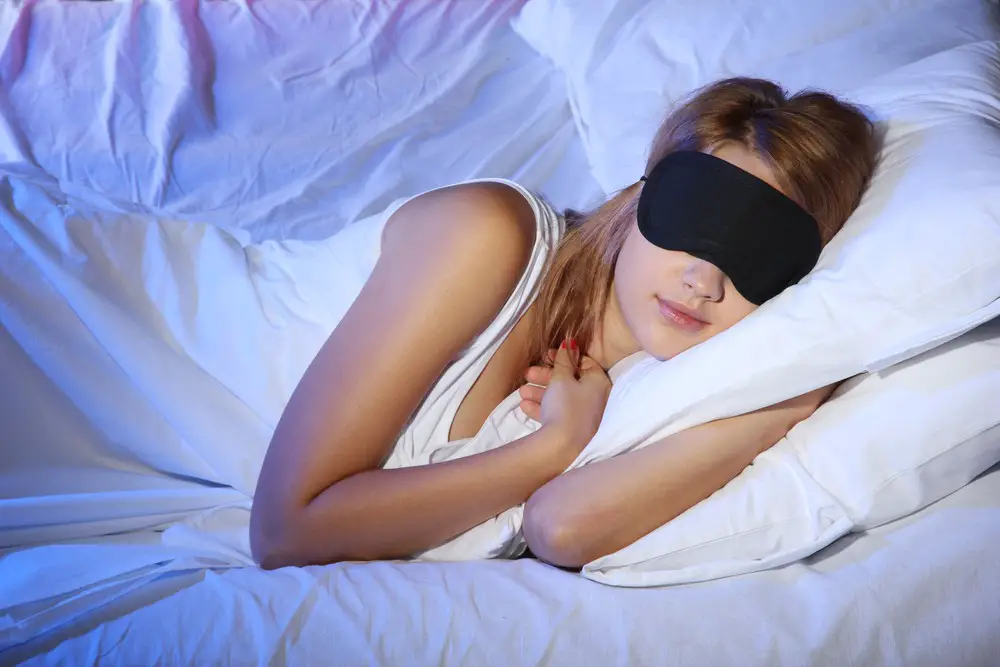
When choosing the best eye mask for restful sleep, you want to make sure that you block out all distractions. The perfect fit will ensure this, and we have discussed that contoured maks will block out more light. Ensuring the mask is made with a light-blocking fabric and has no openings is essential. Otherwise, it won’t block all the lights out.
Therefore, shape and fabric are crucial factors to consider. Here are some standard fabrics used for eye masks:
Cotton
Cotton is good for eye masks because it’s soft, sturdy, lightweight, and will block unwanted light well. It’s a breathable and moisture-wicking material, making it ideal for those who get hot and sweaty while sleeping. However, the high absorption level of cotton may prove counteractive if you use creams at night. Cotton eye masks are inexpensive and easy to wash.
Silk
The luxurious feel of silk makes it an excellent fabric for a sleep mask. Additionally, it’s breathable and blocks light out very well. Silk is the perfect material to use around the delicate skin of the eye area since it soothes the area and minimizes wrinkles and puffiness. However, silk is not as sturdy or durable as other materials used for eye masks, and you must treat it delicately when washing.
Satin
Satin combines silk and cotton, giving you all the benefits of these two materials. It’s a breathable and lightweight fabric that will block out unwanted light. Satin is durable and easier to care for.
Polyester
Polyester is a durable material that’s also lightweight and inexpensive. However, it’s not moisture-wicking, meaning you might sweat at night. It’s also very absorbent, absorbing any night treatments from your skin.
Wake Up Refreshed
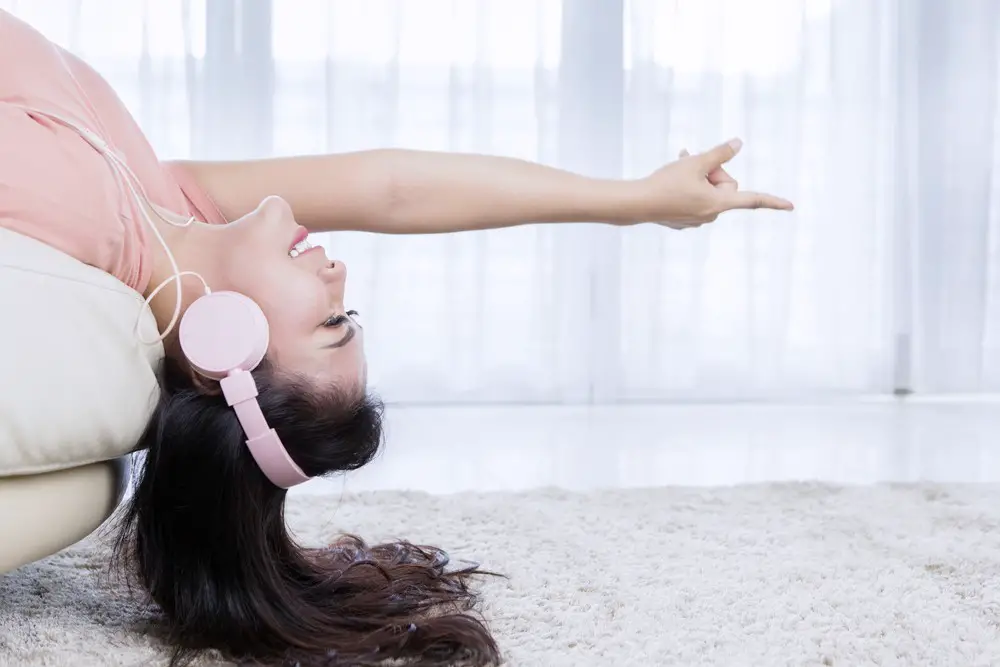
Sound sleep is the secret to waking up refreshed. The setting you sleep in plays a huge role in your sleep quality and if you will wake up refreshed. An uncluttered room, comfortable bed, and good linens are essential, but so is blocking out light.
If you are having trouble getting your room dark enough because of electronic devices or exterior light creeping in, you must choose one of the best eye masks for sleeping to help you wake up refreshed.
Some people prefer weighted masks for comfort and calm, while others prefer cushioned masks that fit their face contours. The Imak Eye Pillow is an excellent, affordable, and well-rated eye mask, but so is the Baloo Weighted Silk Sleep Stone Mask, even though it will set you back a bit more money.
Enhance Your Beauty Sleep
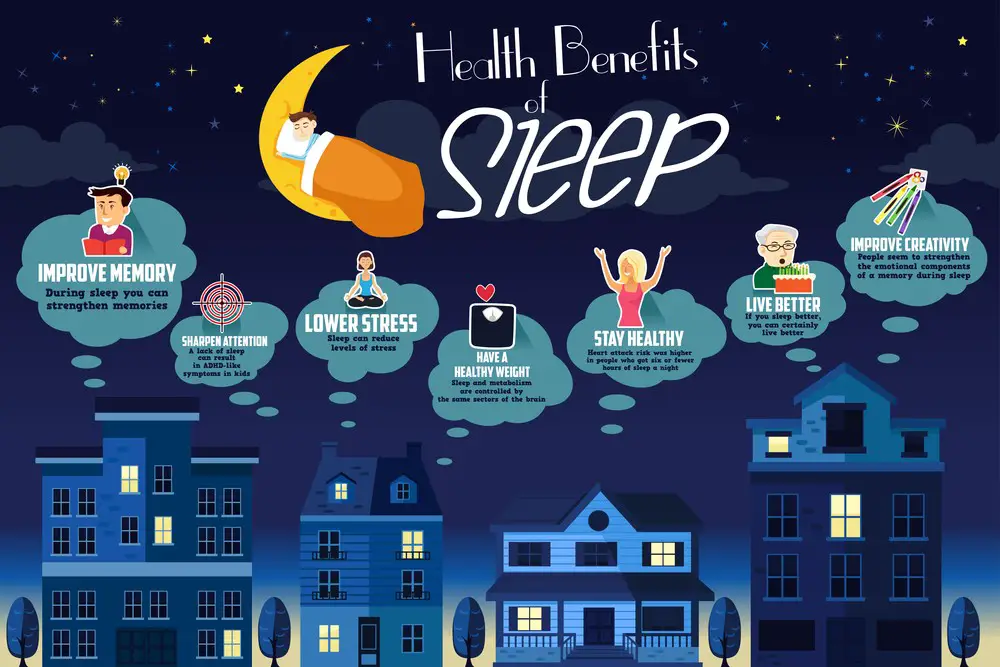
Even though there are several alternatives to sleep masks, including blackout curtains, supplements, and lifestyle changes that can help you enhance your beauty sleep, eye masks are convenient because you can take them anywhere.
Choosing the best eye mask for sleeping is quite easy. First, decide what qualities you are looking for in an eye mask. Consider your face shape and material preferences. If you are ordering a mask online, ensure the company has a return policy if you aren’t happy with the sleep mask.
Things to look for include adjustability, washability (some are hand wash only), and, if you travel a lot if it comes with a travel bag.
Say Goodbye to Dark Circles
If you have dark circles around the eyes, you probably know that a lack of sleep can worsen them. An eye mask is the best solution to ensure you sleep well. However, you can also combine your rest with a sleep mask that cools to help reduce the signs of dark circles, puffiness, and irritation.
The Earth Therapeutics Gel Bead Sleep Mask and the Slow North Eye Mask (cools and heats) are ideal for cooling and soothing the eye area while you sleep. If you don’t want to try a cooling sleep mask, why not try one that uses vibrations and massage to help you get more sleep and relieve eye strain – Therabody SmartGoggles.
Achieve Deeper Sleep
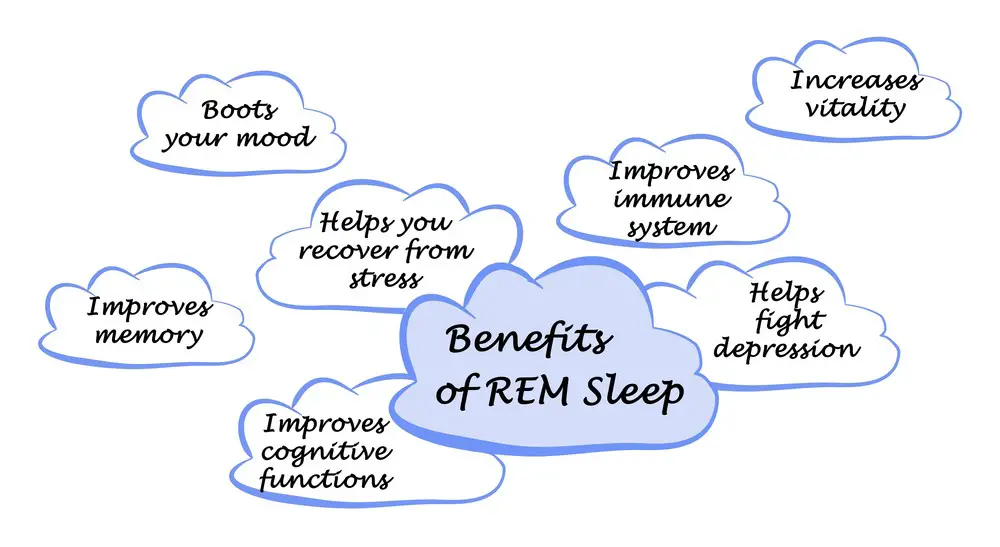
The best eye mask for sleeping must have a comfortable fit, feel good against the skin, effectively block out light, and not come off whatever your sleeping position.
Sometimes, this isn’t easy to achieve on your first try. Realistically, you will probably buy a few masks before you find the perfect one to help you fall asleep faster and wake up well-rested.
Whether you are looking for a luxurious silk mask like the Drowsy Sleep Co. Silk Sleep Mask or a good-quality budget mask like the Tempur, first look at their specifications and review in this blog from Apartment Therapy.
Discover the Benefits
Exposure to light at bedtime, whether you sleep during the day because of night shifts or if your room has too much light at night, can interrupt your body’s natural sleep prompts. The benefits of choosing the best eye mask for sleeping include:
- One of the most common causes of insomnia is a lack of melatonin, the sleep-inducing hormone suppressed by artificial light. Blocking out artificial light with an eye mask can help you fall asleep and help improve your sleep quality.
- Eye masks have a calming and relaxing effect thanks to their soft material and gentle pressure on the face in the eye area, helping you sleep faster.
- If you sleep with someone who keeps different hours than you or likes to read late into the night, an eye mask ensures you keep to your sleep schedule.
- Eye masks are great for travelers needing to sleep on long-haul flights, getting used to a new environment, or trying to recover from jet lag as they get used to a new time zone.
- Several studies have shown the benefits of wearing a sleep mask. One study revealed that people sleeping with lights were frequently aroused and only slept shallowly. Research on people’s sleep quality in intensive care showed that those wearing eye masks had longer REM sleep. Those ICU patients using earplugs and sleep masks saw even more significant improvements in their sleep quality. In another study, participants using eye masks and earplugs woke up less at night and had higher melatonin levels.
🌟 To Mask or Not to Mask: Who Benefits from Sleep Masks? 🌙
Sleep masks can be a game-changer for many individuals seeking to improve their sleep quality, but they’re not necessarily a one-size-fits-all solution. Here’s who may benefit from using sleep masks and who may not:
Who May Benefit:
- Light Sensitivity: If you’re sensitive to light and struggle to fall asleep or stay asleep due to ambient light sources, a sleep mask can provide the darkness you need for optimal rest.
- Shift Workers: For those who work non-traditional hours or have irregular sleep schedules, such as shift workers or frequent travelers, a sleep mask can help regulate sleep-wake cycles and promote better sleep quality.
- Travelers: Whether on a long-haul flight, staying in a hotel room with bright lights, or adjusting to a new time zone, a sleep mask can help create a familiar sleep environment and minimize disruptions to your rest.
- Sleep Partners: If you share a bed with a partner who prefers to read or watch TV late into the night, a sleep mask can help block out ambient light and maintain your sleep environment, allowing you to sleep undisturbed.
Who May Not Benefit:
- Claustrophobia: Wearing a sleep mask may exacerbate feelings of claustrophobia and interfere with relaxation for individuals who feel uncomfortable or anxious with objects covering their faces.
- Skin Sensitivities: Some individuals may experience skin irritation or discomfort from wearing sleep masks, particularly if they have sensitive skin or allergies to certain materials.
- Sleep Apnea: While sleep masks can help block out light and create a conducive sleep environment, they’re not a treatment for sleep apnea or other serious sleep disorders. In fact, for individuals with sleep apnea, wearing a sleep mask may not address the underlying breathing issues contributing to their sleep disturbances.
- Toss-and-Turn Sleepers: If you’re a restless sleeper who frequently shifts positions throughout the night, wearing a sleep mask may be uncomfortable or may come off during sleep, diminishing its effectiveness.
Ultimately, whether or not you benefit from using a sleep mask depends on your individual sleep preferences, sensitivities, and needs. Experiment with different masks and sleep environments to determine what works best for you and promotes optimal rest.
Invest in Quality Rest
When investing in quality rest, you need to do nothing more than look for the best eye mask for sleeping. Since you have a choice of several types, it depends on which type, shape, and fabric will match your sleep-time needs.
Here are some of Cosmopolitan’s top picks to help you find the best eye mask to ensure you wake up feeling refreshed. Whether you are looking for the best fitting, best weighted, best contouring, best silk, or the best cooling mask, this is where to start your research.
🚀 Elevate Your Sleep Game: Insider Tips for Maximum Zzzs! 💤
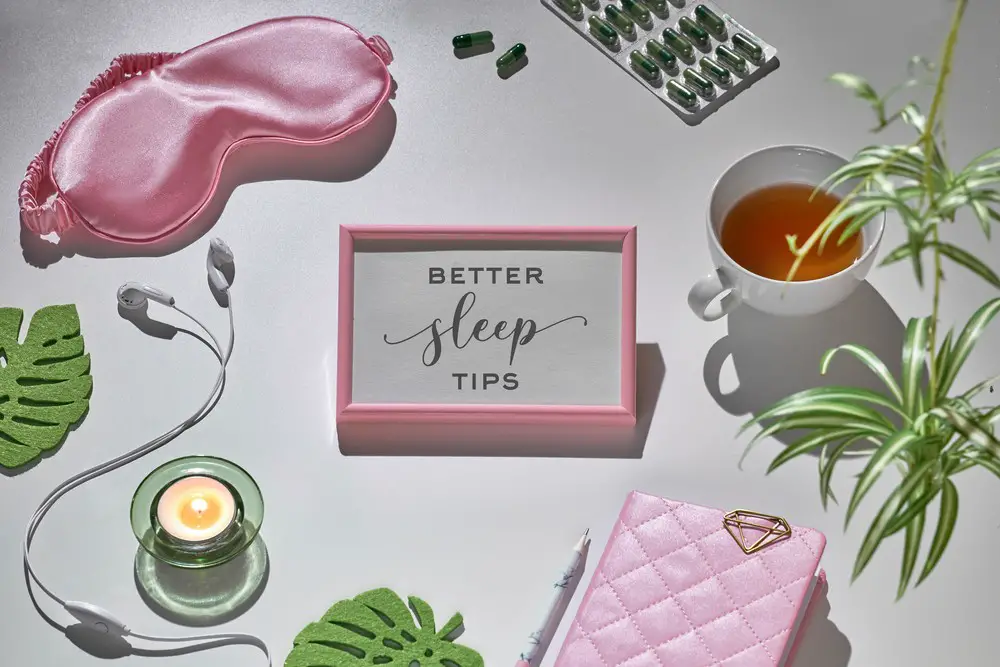
Ready to take your sleep to the next level? Dive into these insider tips and tricks to supercharge your shut-eye:
- Create a Sleep Sanctuary: Transform your bedroom into a cozy oasis conducive to quality sleep. Invest in comfortable bedding, minimize noise and light, and keep electronic devices out of sight.
- Unwind Before Bed: Establish a relaxing pre-sleep routine to signal your body that it’s time to wind down. Try activities like reading, gentle stretching, or practicing mindfulness meditation to prepare your mind and body for rest.
- Stick to a Schedule: To regulate your body’s internal clock, maintain a consistent sleep schedule, even on weekends. Aim for seven to nine hours of sleep per night to feel your best.
- Limit Stimulants and Screens: Avoid caffeine and heavy meals close to bedtime, and power down electronic devices at least an hour before lights out. Screens emit blue light, which can disrupt melatonin production, making it harder to fall asleep.
- Stay Active: Regular exercise can improve sleep quality and duration. Aim for at least 30 minutes of moderate activity most days of the week, but avoid vigorous workouts too close to bedtime.
- Mind Your Mattress: Invest in a supportive mattress and pillows that suit your sleep style and preferences. For optimal comfort and support, replace your mattress every seven to ten years.
- Manage Stress: Before bed, practice stress-reducing techniques like deep breathing, progressive muscle relaxation, or journaling to ease tension and promote relaxation.
By incorporating these tips into your nightly routine, you’ll set yourself up for deep, restorative sleep and wake up refreshed and rejuvenated every morning. Sweet dreams!
🌟 Recognizing Serious Sleep Issues: When to Seek Medical Advice 🌟
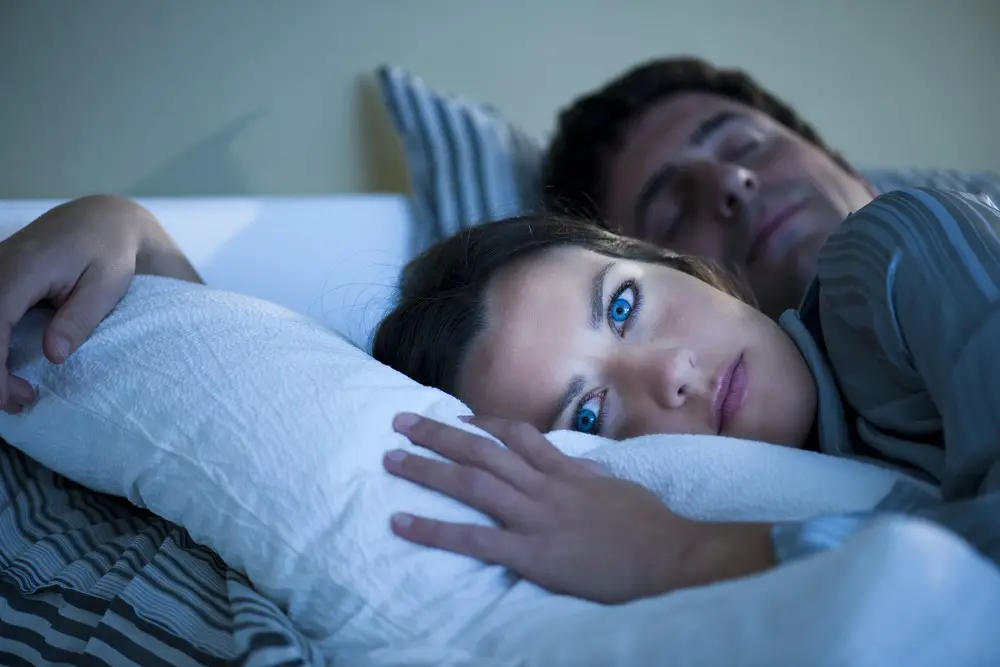
While most sleep problems can be improved with lifestyle changes and better sleep habits, it’s essential to recognize when your sleep issues may require professional intervention. Here are some signs that it may be time to seek medical advice:
- Persistent Sleep Disturbances: If you consistently struggle to fall asleep, stay asleep, or wake up feeling unrested despite trying various sleep strategies, it may indicate an underlying sleep disorder such as insomnia, sleep apnea, or restless leg syndrome.
- Daytime Impairment: If your sleep troubles begin to interfere with your daytime functioning, such as difficulty concentrating, irritability, or excessive daytime sleepiness that impacts your work, relationships, or daily activities, it’s crucial to address these issues promptly.
- Physical Symptoms: Chronic sleep deprivation can take a toll on your physical health, leading to symptoms such as headaches, muscle tension, digestive problems, or a weakened immune system. If you experience any of these symptoms, it’s essential to address the underlying sleep issues.
- Mood Changes: Sleep problems can also impact your emotional well-being, leading to mood swings, increased stress or anxiety, depression, or feelings of hopelessness. If you notice significant changes in your mood or mental health, it’s essential to seek support from a healthcare professional.
When to Consider Medication or Counseling:
- Medication: In some cases, medication may be necessary to manage severe sleep disorders or underlying mental health conditions contributing to sleep disturbances. However, medication should only be used under the guidance of a healthcare professional and as part of a comprehensive treatment plan.
- Counseling: Cognitive-behavioral therapy for insomnia (CBT-I) is a highly effective treatment for chronic sleep problems, addressing underlying thoughts, behaviors, and habits that contribute to sleep difficulties. Counseling or therapy can also be beneficial for managing stress, anxiety, or depression that may be impacting your sleep.
Remember, everyone’s sleep needs and experiences are unique, so it’s essential to listen to your body and seek help if you’re struggling. By recognizing the signs of a serious sleep problem and seeking appropriate treatment, you can take proactive steps towards improving your sleep and overall well-being.
- Breaking the Silence: Why Men’s Mental Health Matters More Than Ever - April 15, 2025
- How to Transform a Home’s Patio Space into a Relaxing Space - March 23, 2025
- 5 Strategies to Use a Cell Phone to Help Manage Your Stress - March 23, 2025
This site contains affiliate links to products. We will receive a commission for purchases made through these links.

